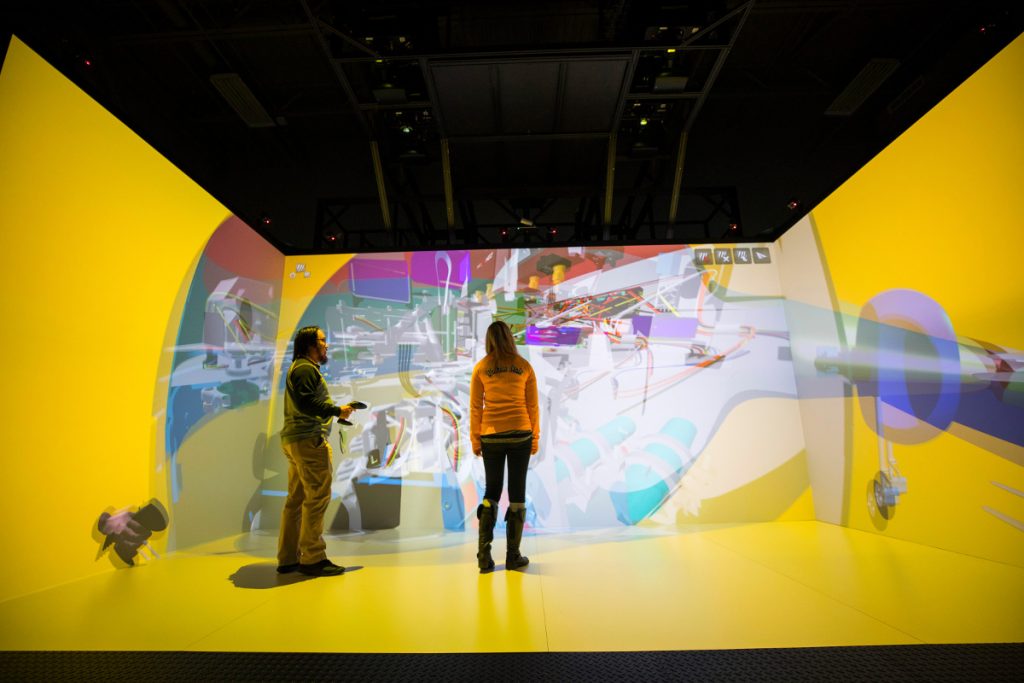Originally published in Compass magazine

The leading businesses of tomorrow will be those that empower their workforces and value networks with the knowledge and know-how to deliver new categories of sustainable solutions. With rapid evolution of workplace roles, learning how to learn is now essential, and virtual platforms support people as they innovate, produce, share and learn.
One of the world’s largest agriculture engineering companies, the German firm CLAAS, had a staffing problem.
CLAAS, a family-owned company headquartered in Harsewinkel, uses 3D design and simulation software to create its advanced harvesters and other farm equipment. But when CLAAS found that it could not hire enough graduates trained to use its advanced technology, it created a school.
The Green House gives ninth-year students from nearby schools three years of handson training three times per week on the same sophisticated systems that CLAAS designers and engineers use.
“Our state schools are sometimes too traditional, so we are trying to fill the gap and make these students really ready for the Workforce of the Future,” said Philip Vospeter, head of digital transformation at CLAAS.Halfway around the world in Wichita, Kansas, John Tomblin, executive director of the National Institute for Aviation Research at Wichita State University, heard from an aerospace executive who complained his firm was investing two full years in training new engineering graduates in computer-aided design, engineering and manufacturing. “We want it down to zero,” the executive said.Wichita State responded by creating an experience-based learning program that trains students on a virtual experience platform, then puts them to work at multiple aircraft manufacturing sites around Wichita. “It’s applied learning for 3D design experience and knowledge of digital transformation software,” Tomblin said.
The training alliance between Wichita State and nearby employers is an example of how experience-based learning programs that connect academics and industry empower the Workforce of the Future and accelerate companies as they digitally transform.
LEARNING ON THE JOB
To compete in a fast-changing world, companies are equipping their employees with virtual experience platforms that make them more efficient, but that also elevate their roles. With better access to knowledge and know-how in virtual worlds where they can collaborate and test new ideas, workers are empowered to create more agile work environments.
“RETRAINING OR CONTINUAL DEVELOPMENT OF EMPLOYEES IS INCREDIBLY IMPORTANT.” Darren Burton – Chair of Human Resources, KPMG
Consistent with the Industry Renaissance maxim that “accessible and augmented knowledge and know-how are the keys to success,” Industry Renaissance employers are using their virtual experience platforms to connect their operations with academic partners, customers and end users, leveraging collective intelligence and an entrepreneurial mindset to enable a new approach to innovation and to doing business.
Industry Renaissance is shaped by people who can produce holistic experiences that people will love. It does this by connecting designers, engineers and marketers with consumers, retailers, and educational organizations to imagine, test, create and operate experiences, first in the virtual world and then in the real world.
“Workers will have to have more knowledge in their fields because all kinds of work will require more information,” says Roberta Bigliani, a Milan-based specialist in future workforce issues at market intelligence firm IDC. “They will likely be working alongside digital coworkers powered by artificial intelligence that will help them perform their jobs.”
IDC predicts that the rapid adoption of technology fundamental to Industry Renaissance is likely to create more new jobs than will be lost to automation – but workers must be trained to fill them.
“The traditional workplace will change dramatically and some tasks will be automated,” Bigliani said. “But we think there will be new jobs because there will be huge industries created because of artificial intelligence and the entire machine-learning story.”
A survey by consultants KPMG found that, like Bigliani, 66 percent of global CEOs believe technology will create more jobs than it eliminates. Many economies are already experiencing a shortage of trained workers.
“Jobs designed for people with highly specialized capabilities are clearly increasing, but the supply of qualified workers isn’t keeping pace and business leaders insist workforce preparation simply hasn’t kept up with the modern nature of jobs,” consultants with Deloitte Private wrote in an August 2018 research study called “Technology in the Mid-Market: Embracing Disruption.”
TECHNOLOGY THAT TRAINS
KPMG notes that success in the Workforce of the Future will require lifelong learning.
“Retraining or continual development of employees is incredibly important for two reasons,” said Darren Burton, KPMG’s vice chair of Human Resources.
“One is that high-performing, solid employees are a better bet in many cases than recruiting and integrating new employees into an organization. The second reason is that it is an important role of employers in the world today to retrain people, and to continue to provide them with new career opportunities.”
Fortunately, virtual experience platforms provide employers with the virtual experiences that help train employees, as well as the ready access to the knowledge and know-how they need to do increasingly complex and varied jobs. ◆

